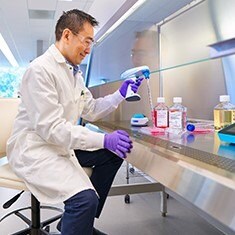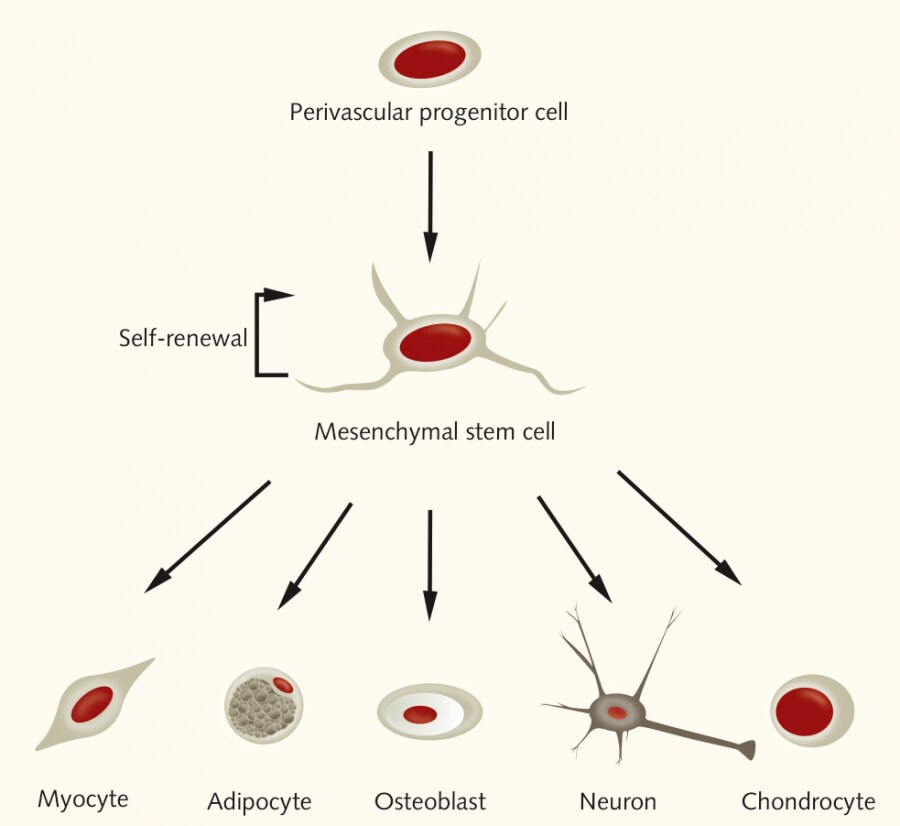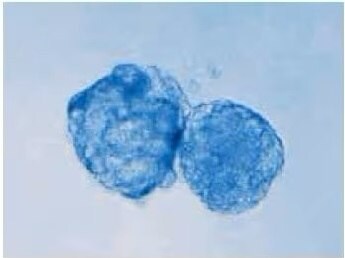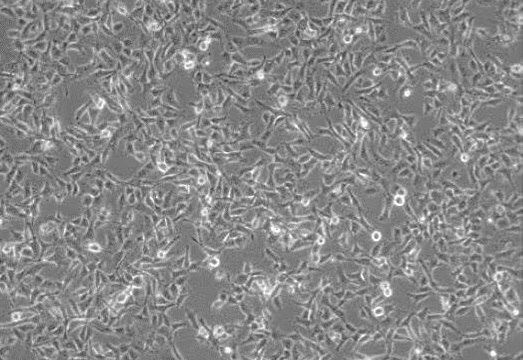PromoCell® Human
Primary Cells
Physiologically relevant primary cells

With the explosion in cell culture experiments, biomedical researchers look to more relevant and meaningful cell models. Unlike immortalized cell lines, primary cells are directly derived from living tissue and thus closely replicate the biological tissues from which they originate. Primary cells are increasingly useful in various cellular applications, such as life science research, pharmaceutical development, and ADME/toxicity studies
Our partnership with PromoCell® includes an authenticated portfolio of primary cells, advanced media formulations, and extensive protocols and technical notes. PromoCell® primary cells are fully characterized to meet study-specific donor criteria including age, sex, race, health status, BMI range, and smoking status. Our portfolio includes flexible cell lot and can accommodate donor reservations. It is possible to make a request for specific primary cells from PromoCell®. These cells are guaranteed to have purity, sterility, and robust growth rates, making them suitable for a wide range of applications.
How do you choose the best cells for your process?
- What primary cells do you need?
- How do you cultivate these cells?
- What media do you need?
- Does your project require specific primary cells?
Explore our comprehensive primary cell portfolio and discover our ethically-sourced primary and stem cells, precisely-formulated culture media, and validated protocols.
Human Blood and Stem Cells

Human stem and blood cells have hundreds of different research and biomedical applications, from infectious disease and drug discovery to immunology and cardiovascular studies. Our portfolio includes a comprehensive collection of stem and blood cells. These cells are ideal for cellular experiments or as a starting cell for differentiation and the isolation of multiple cell subpopulations, including hematopoietic and endothelial progenitors, lymphocyte, and monocyte subpopulations.
We offer a variety of informative technical articles and step-by-step protocols to help you discover the best ways to cultivate, differentiate, and expand your cells.
- Human dendritic, macrophage, and monocyte cell culture
- Differentiation of human PBMC into M1 or M2 macrophages
- Mesenchymal stem cell differentiation
- Differentiation of human PBMC into mature dendritic cells
- Human mesenchymal stem cells
Find more information on PromoCell® human blood and stem cell types and protocols.
Cancer Cells and Tumor Spheroids

Cancer research is a major focus of biomedical fields today, with thousands of new publications produced every year. By culturing cancer cell lines and tumor spheroid lines, researchers can closely replicate the tumor environment in their studies. Researchers can also target the root of cancer - the cancer stem cell subpopulation within a tumor. Cancer stem cells have been identified in several different cancers, including both solid tumor and hematopoietic cancers.
With our comprehensive portfolio of cancer cell lines, researchers can easily isolate, culture, and monitor primary cancer cells and tumor spheroids.
PromoCell® Media and Reagents

An important step in the cell culture workflow is choosing the ideal media for your project. Media selection can significantly impact cell growth and project outcomes; the media you use will depend on the cell of interest and application. Different primary cell lines can have specific growth or differentiation requirements. Specific media formulations are important to support primary cell growth in vitro.
Through our partnership with PromoCell®, we offer validated and specially formulated tissue culture media to aid in cultivating, passaging, and storing your cells.
Human Mononuclear Cell Culture System
Mononuclear cells (MNC) represent the enriched lymphocyte and monocyte fraction of whole blood; they are isolated from umbilical cord blood and adult peripheral blood of healthy donors. MNCs from adult peripheral blood (hMNC-PB) contain a high proportion of mature immune cells.
Our ultrapure MNCs do not clump when thawed and exhibit superior viability and biological function. MNCs are cryopreserved immediately after isolation using proprietary serum-free freezing medium. Each cryovial contains at least 25 million viable cells after thawing.
- Lots are routinely characterized by flow cytometry for viability and a series of cellular characteristics including cell size and granularity.
- Cells are tested for the absence of HIV-1, HIV-2, HBV, HCV, HTLV-1, HTLV-2 and microbial contaminants (fungi, bacteria, and mycoplasma).
Our Mononuclear Cell Medium is a highly nutritive short-term maintenance medium, which provides optimal cell viability for MNCs from umbilical cord blood, adult peripheral blood, and other sources such as bone marrow. The MNC Medium consists of a bottle of Basal Medium and one vial of SupplementMix. Combining the SupplementMix with the Basal Medium constitutes the complete Medium.
PromoCell® MNC Medium contains all the growth factors and supplements necessary for optimal short-term maintenance of mononuclear cells, does not contain antibiotics or antimycotics, and is formulated for use in an incubator with an atmosphere of 5% CO2.
PromoCell® Cancer Cell Media
PromoCell® cancer cell media helps researchers support cancer stem cells independent of their origin type, enabling long-term cultivation and multiple passages of cancer stem cells. Our collection of primary cancer cell media includes 3D Tumorsphere Medium XF, Primary Cancer Cell Culture System, and Cancer Cell Line Medium XF. Researchers can use these media to develop their own primary cancer cell lines, form homogeneous tumorspheres and complex cancer models, and build their own patient-derived cell line. Learn more about our portfolio of primary cancer cell media and cultivate healthy cancer stem cells.
Experimental Applications:
- Develop primary cancer cell lines that fit any specific experimental design and cell subtype.
- Form and maintain functional tumorspheres from established cell lines, biopsies, and non-cancerous cells.
- Build and verify robust organoid and other 3D cancerous tumor models.
- Select cancer stem cells and establish primary cell cultures from patient-derived biopsies.
- Co-culture organoids with effector immune cells to build more complex 3D tumor models.
Related Content
- /VN/en/technical-documents/technical-article/cell-culture-and-cell-culture-analysis/primary-cell-culture/vascular-pericytes-faqs
- /VN/en/technical-documents/technical-article/cell-culture-and-cell-culture-analysis/primary-cell-culture/skeletal-muscle-cell-culture
- /VN/en/technical-documents/technical-article/cell-culture-and-cell-culture-analysis/primary-cell-culture/pericyte-cell-culture
- /VN/en/technical-documents/technical-article/cell-culture-and-cell-culture-analysis/mammalian-cell-culture/osteoblast-differentiation
- /VN/en/technical-documents/technical-article/cell-culture-and-cell-culture-analysis/primary-cell-culture/chrondrocyte-culture
- /VN/en/technical-documents/technical-article/cell-culture-and-cell-culture-analysis/primary-cell-culture/renal-epithelial-cell-culture
- /VN/en/technical-documents/technical-article/cell-culture-and-cell-culture-analysis/primary-cell-culture/follicle-dermal-papilla-cell-culture
- /VN/en/technical-documents/technical-article/cell-culture-and-cell-culture-analysis/primary-cell-culture/keratinocyte-culture
Discover our full collection of PromoCell® cell lines.
To continue reading please sign in or create an account.
Don't Have An Account?